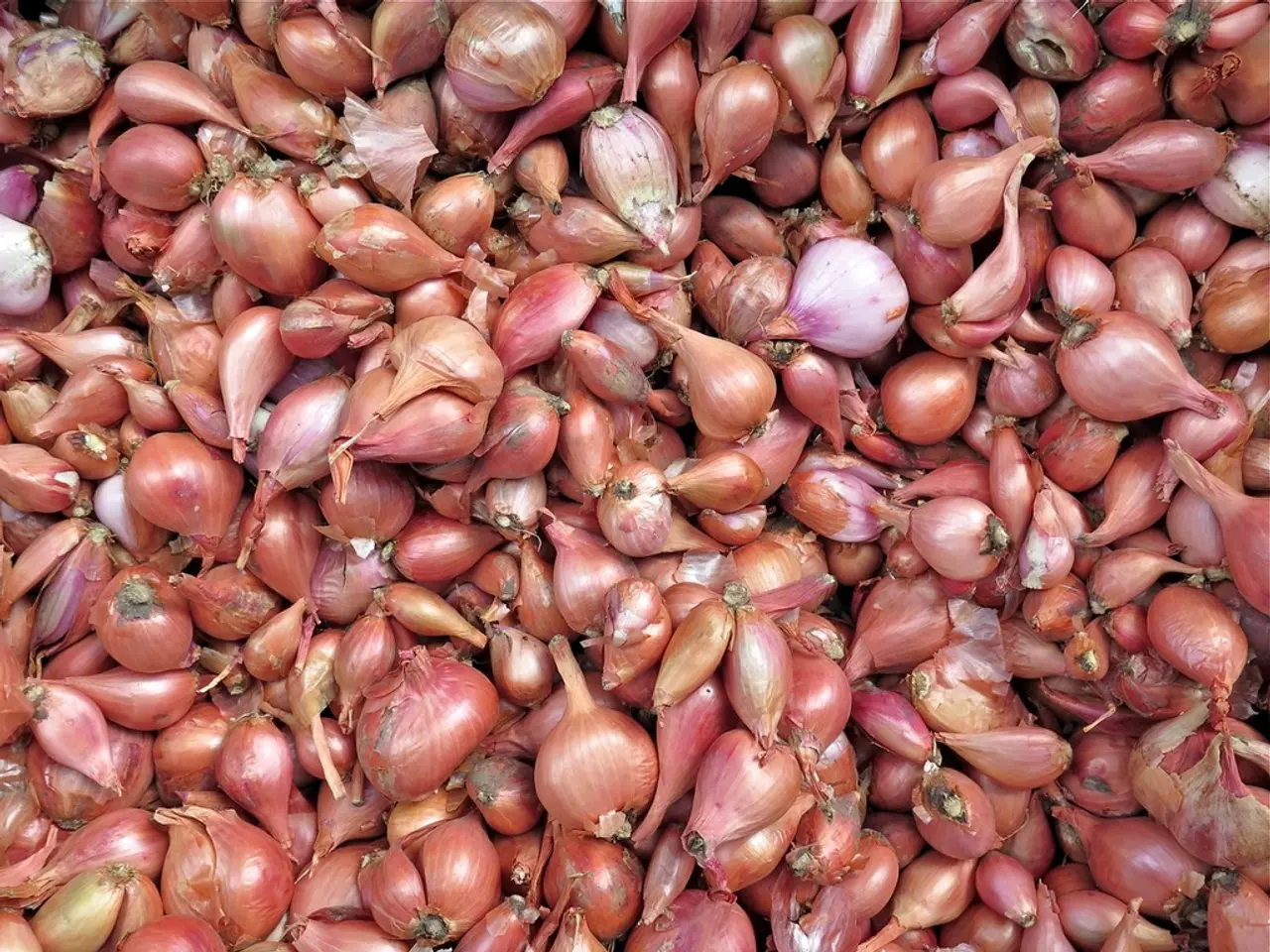Onions: Health Advantages and Nutritional Composition
In the world of allium vegetables, onions stand out as a nutrient-dense food, offering a wealth of vitamins, minerals, and antioxidants while remaining low in calories. This versatile vegetable, a member of the Allium family, which includes chives, garlic, and leeks, comes in various forms, most commonly red, yellow, and white onions. However, there is a nutritional difference between spring onions (also known as green onions or scallions) and regular onions.
Spring onions, harvested before the bulb fully develops, have a milder, sweeter taste. These vegetables are rich in vitamins such as Vitamin A, B-complex, C, calcium, magnesium, and potassium. They are also a good source of dietary fiber and have compounds that may support cardiovascular health and reduce blood sugar levels.
On the other hand, regular onions, with their mature underground bulbs, have a stronger, more pungent flavor. Nutritionally, regular onions contain around 8 grams of net carbs per 100 grams, along with about 1.5 grams of fiber. They are rich in antioxidants and compounds like quercetin, which have been linked to anti-cancer and anti-inflammatory benefits.
In a nutritional comparison, spring onions tend to be lighter in carbohydrates and have more vitamins associated with the green shoots. Regular onions, however, have a stronger nutritional profile in terms of antioxidants and anti-cancer phytochemicals due to the mature bulb.
Here's a summary of the nutritional aspects of both spring onions and regular onions:
| Nutritional Aspect | Spring Onions (Green Onions) | Regular Onions | |-----------------------------|----------------------------------------|-----------------------------------| | Part eaten | Green stalks and immature bulb | Mature underground bulb | | Taste | Sweet, mild | Pungent, stronger | | Carb content (approx.) | Generally lower (less bulb development) | About 8g net carbs per 100g | | Vitamins & minerals | Vitamin A, B-complex, C, calcium, magnesium, potassium | Rich in antioxidants, vitamin C, quercetin | | Fiber | Good source | Moderate (about 1.5g per 100g) | | Health benefits | Cardiovascular support, blood sugar regulation | Anti-cancer, anti-inflammatory, immune support |
Both spring onions and regular onions offer numerous health benefits. Spring onions, with their higher vitamin content, support cardiovascular health and help regulate blood sugar levels. Regular onions, with their rich antioxidant content, have been linked to anti-cancer and anti-inflammatory benefits, as well as immune support.
It's important to note that while China is the biggest producer of onions worldwide, according to the Food and Agriculture Organization of the United Nations, the exact mechanism by which some compounds in onions inhibit cancer is not fully understood. Research suggests a link between the consumption of allium vegetables, such as onions, and a reduced risk of colorectal cancer. Additionally, quercetin, a compound found in onion skin, has been linked to lower blood pressure when administered as a supplement.
In terms of calorie content, one cup of chopped onions contains 64 calories, making them a low-calorie addition to any meal. Onions also contain significant amounts of Vitamin B-6, providing 11.29-14.77%, depending on age.
In conclusion, whether you prefer the milder taste of spring onions or the stronger flavour of regular onions, both vegetables offer a wealth of nutritional benefits. When used in cooking, their taste and texture differences make them versatile ingredients that can elevate any dish.
- Aq, a seasoning derived from onions, adds a distinct flavor to various dishes, showcasing the versatility of this nutrient-dense food.
- Hiv the virus that causes Aids can be managed with a balanced diet including vegetables like onions, rich in vitamins and minerals.
- Regular onions, besides their pungent flavor, contain mm, a compound which may offer predictive benefits against certain medical conditions such as diabetes.
- Incorporating bipolar amounts of onions into your diet, alongside eye-health promoting foods, can contribute to overall health-and-wellness.
- To manage obesity, consider adding othernutrition like onions to your meals, as they offer low calories and high nutrient density.
- Type 2 diabetes patients might benefit from regular onions, rich in quercetin, an antioxidant linked to blood sugar regulation and metabolic health improvement.
- Skin-care regimes can be complemented with the inclusion of onions, an ingredient traditionally used due to its antioxidant and anti-inflammatory properties.
- Depression can occasionally be linked to nutritional imbalances, so incorporating vegetables like onions, high in important nutrients, may support overall mental wellbeing.
- In the realm of fitness-and-exercise, fueling your body with nutrient-rich foods like onions is crucial for effective recovery and overall performance improvement.




